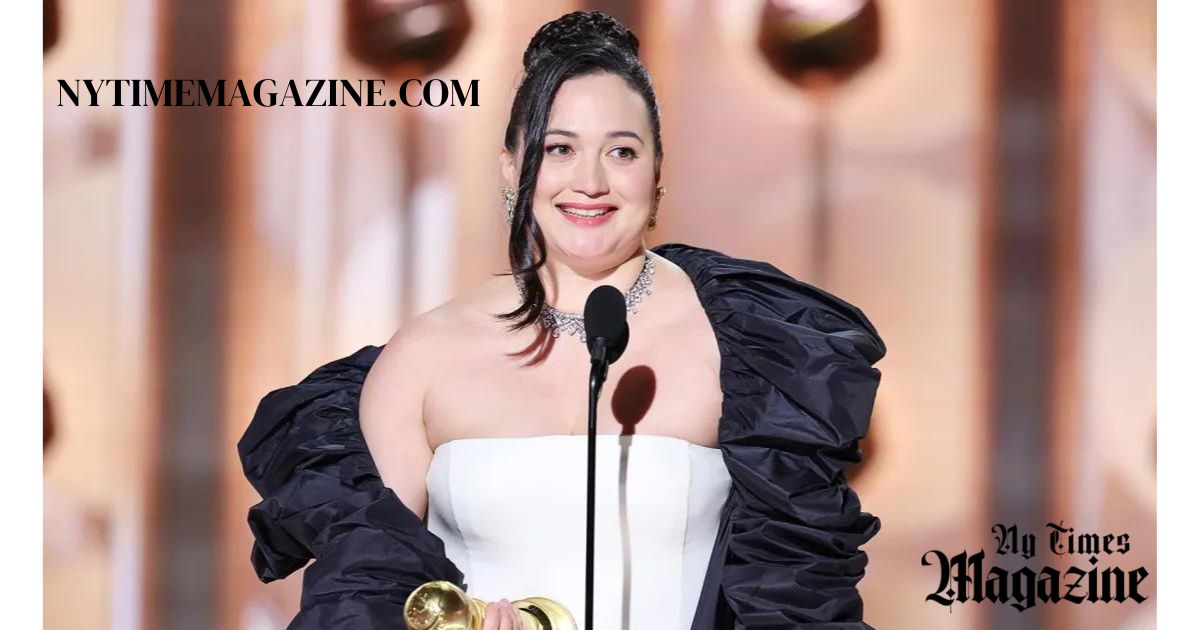Contents
- 1 Introduction:
- 2 The Critique Unveiled:
- 3 Lily Gladstone’s Response:
- 4 Navigating Hollywood’s Casting Challenges:
- 5 The Impact of Representation:
- 6 The Future of Diversity in Hollywood:
- 7 Impact Beyond Entertainment:
- 8 Calls for Systemic Change:
- 9 Addressing Historical Injustices:
- 10 Balancing Artistic Freedom and Responsibility:
- 11 The Role of Social Media:
- 12 Accountability and Transparency:
- 13 The Ripple Effect:
- 14 Inclusive Story Development:
- 15 Global Perspectives on Diversity:
- 16 Conclusion:
Introduction:
In the ever-evolving landscape of Hollywood, discussions surrounding diversity, representation, and authentic storytelling have taken center stage. The recent criticism by Devery Jacobs of the film ‘Killers of the Flower Moon’ has sparked a conversation about the importance of giving marginalized voices a chance to speak. In this article, we delve into Lily Gladstone’s perspective on Devery Jacobs’ criticism, exploring the complexities of diversity in the film industry.
The Critique Unveiled:
Devery Jacobs, known for her roles in indigenous-focused films and TV shows, expressed her concerns about ‘Killers of the Flower Moon.’ The movie, based on David Grann’s non-fiction book, tells the chilling story of the Osage Indian murders in the 1920s. Jacobs raised questions about the casting choices and the representation of indigenous characters in the film, igniting a much-needed conversation about inclusivity in Hollywood.
Lily Gladstone’s Response:
Lily Gladstone, a talented actress known for her standout performances in films like ‘Certain Women,’ responded thoughtfully to Jacobs’ critique. Rather than dismissing the criticism, Gladstone acknowledged the importance of diverse perspectives in storytelling. She recognized the validity of Jacobs’ concerns and highlighted the need for Hollywood to continuously strive for accurate and respectful representation.
Gladstone emphasized the challenges faced by actors and filmmakers when navigating Hollywood’s casting decisions. The industry has historically struggled with representing minority communities authentically. While ‘Killers of the Flower Moon’ aimed to shed light on a dark chapter in history, it also faced scrutiny for not fully capturing the essence of the indigenous characters involved.
The Impact of Representation:
Both Gladstone and Jacobs agree on the profound impact that accurate representation can have on audiences. When marginalized communities see themselves portrayed authentically on screen, it fosters a sense of belonging and pride. However, when missteps occur, as Jacobs pointed out, it can perpetuate harmful stereotypes and contribute to the erasure of indigenous voices.
The Future of Diversity in Hollywood:
In the conclusion of our exploration, we look towards the future. Both Lily Gladstone and Devery Jacobs express optimism about the potential for positive change in Hollywood. By holding the industry accountable and demanding better representation, they believe that future generations of filmmakers and actors will benefit from a more inclusive and culturally aware environment.
Impact Beyond Entertainment:
Beyond the realms of entertainment, Gladstone and Jacobs stress the broader societal impact that accurate representation can have. Film has the power to shape perceptions, challenge stereotypes, and foster empathy. By presenting diverse stories in an authentic light, Hollywood can contribute to dismantling preconceived notions and promoting a more inclusive society.
Calls for Systemic Change:
The conversation sparked by Jacobs’ critique extends beyond a single film. It serves as a call for systemic change within the film industry. Both Gladstone and Jacobs advocate for Hollywood to reassess its casting practices, invest in diverse talent both in front of and behind the camera, and actively support projects that prioritize authentic representation.
Addressing Historical Injustices:
The story of the Osage Indian murders portrayed in ‘Killers of the Flower Moon’ is a painful chapter in history that deserves sensitive and accurate portrayal. Jacobs’ critique emphasizes the importance of acknowledging historical injustices and ensuring that the narrative surrounding these events is handled with care. This raises questions about the responsibility of filmmakers when dealing with stories deeply rooted in real and painful histories.
Balancing Artistic Freedom and Responsibility:
Gladstone recognizes the delicate balance between artistic freedom and the responsibility that comes with portraying historical events and marginalized communities. While creativity should not be stifled, filmmakers must navigate this balance carefully, ensuring that the artistic vision aligns with a commitment to respectful and accurate representation.
The Role of Social Media:
In the age of social media and instant communication, audiences play a significant role in shaping the narrative surrounding films. Both Gladstone and Jacobs acknowledge the power of audience voices in holding the industry accountable. By expressing support for films that prioritize diversity and respectfully critiquing those that fall short, audiences contribute to the momentum for change within Hollywood.
Accountability and Transparency:
Both actresses advocate for increased accountability and transparency within the industry. This involves acknowledging mistakes, learning from them, and actively implementing changes to prevent similar missteps in the future. Gladstone and Jacobs believe that a transparent and accountable Hollywood is essential for rebuilding trust with audiences and creating an environment where constructive criticism is valued.
The Ripple Effect:
As our exploration comes to an end, it is clear that the dialogue initiated by Devery Jacobs’ critique has the potential for a ripple effect throughout the film industry. By addressing the concerns raised and actively working towards positive change, Hollywood can set a precedent for other entertainment industries worldwide. The experiences and perspectives of Gladstone and Jacobs contribute to a collective narrative that seeks to redefine the standards of inclusivity in storytelling.
Inclusive Story Development:
Expanding on the need for authentic representation, Gladstone and Jacobs call for a shift in the way stories are developed. They advocate for inclusivity in the early stages of script development, where diverse voices can contribute to shaping narratives from the ground up.
Global Perspectives on Diversity:
Diversity is a global issue, and the insights provided by Gladstone and Jacobs resonate beyond the borders of Hollywood. The film industry worldwide is grappling with similar challenges related to representation and inclusion. By recognizing and addressing these challenges collectively, Hollywood can contribute to a global shift towards more equitable and culturally sensitive storytelling.
Conclusion:
The perspectives shared by Lily Gladstone and Devery Jacobs on the criticism of ‘Killers of the Flower Moon’ contribute to a broader discussion about the future of diversity and representation in Hollywood. By exploring solutions, advocating for inclusivity, and embracing ongoing dialogue, the film industry has the potential to undergo a transformative shift. As we navigate these complexities, the commitment of individuals like Gladstone and Jacobs to fostering positive change sets a precedent for a more inclusive, respectful, and culturally aware cinematic landscape.



